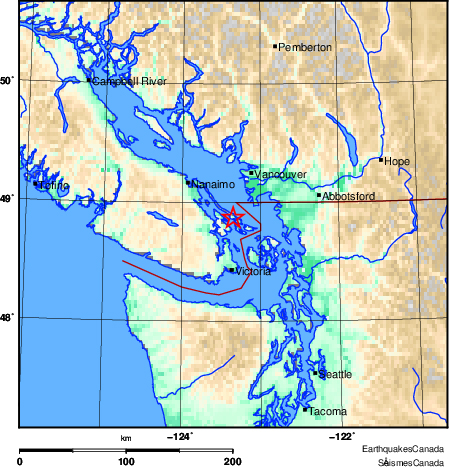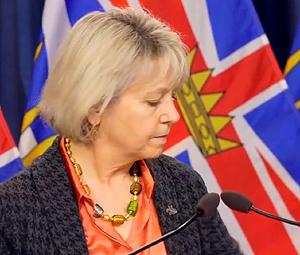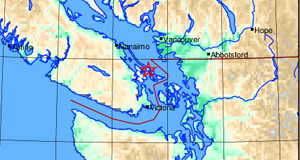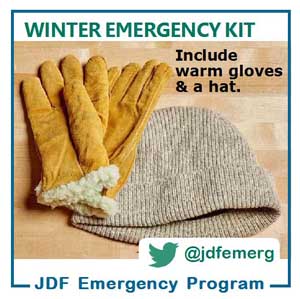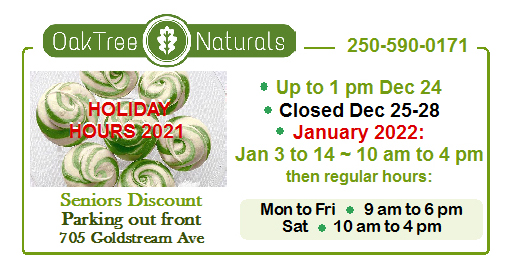Friday December 17, 2021 | VICTORIA, BC [Updated December 18, 2021]
by Mary P Brooke | Island Social Trends
This morning an earthquake that woke some people up in Greater Victoria at 4:14 am (well, 4:13:52 to be exact) was yet another reminder that everyone should have an emergency kit.
- Have a kit for each location that you might be in when a quake hits, including home, car, and workplace.
- Have a kit for each person in your household, and also for your pets.
Today’s 3.8 Magnitude quake happened 22.7 km below the surface and 49 km north of Victoria; it was felt primarily under the Gulf Islands but was also in Greater Victoria.
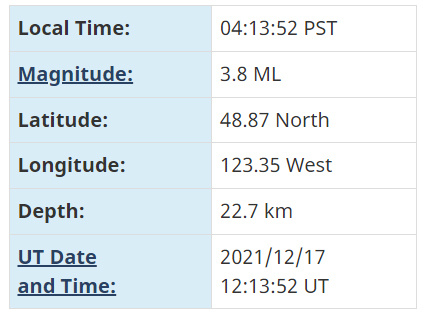
National Resources Canada said there are no reports of damage, and none would be expected.
Emotional impacts of quakes:
Provincial Health Officer Dr Bonnie Henry highlighted the earthquake during her COVID-19 update today, eluding to the mental health impacts.
For some people it might have been just ‘one more thing’ in this year 2021 that has been challenging.
“It can be challenging to think, ‘are we going to make it through this year?’,” is what her first thoughts were when the shaking happened, Dr Henry said during her media session today.
“We need to be with family and friends during this time,” she said about people tending to their own well-being in the year-end holiday season, in the context of the disruption she felt at 4:14 am.
“We are (going to be okay), we know what we need to do, and we’ve been here before,” Dr Henry said about making smart choices about protections in the context of the rising wave of the Omicron variant during the ongoing COVID-19 pandemic.
A significant increase in COVID cases is already seen, and is expected to rise further due to the indoor close-contact that people will take part in over the holiday season. | Link to the Island Social Trends COVID archive.
Emergency preparedness:
Juan de Fuca Emergency Program Coordinator Jeri Grant says this morning’s quake is a good reminder that an earthquake can happen anytime. “Be prepared, make a plan, and have an emergency kit,” she said today.
“If you don’t have a pair of shoes and a flashlight under your bed, this is the time to do it,” says Grant.
Jeri Grant is one of the coordinators of the ShakeOutBC earthquake drill which takes place in October each year, helping to educate the public about the next ‘big one’. This year over 750,000 people and organizations participated in ShakeOutBC.
The last ‘big one’ was the 1700 Cascadia earthquake which occurred along the Cascadia subduction zone on January 26, 1700.
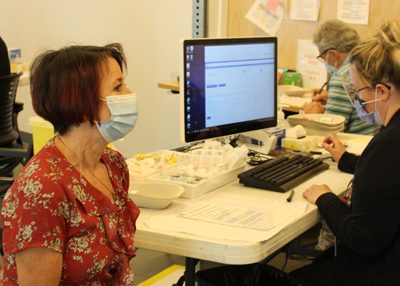
Eight things to consider:
Eight key things to include in an emergency kit cover these basics: food, water, first aid, sanitization, heat, shelter, light and communication.
The COVID pandemic adds another layer to that. Make sure to have enough face masks and hand sanitizer in your kits. Also have a plan for how to maintain physical and social distancing while still being able to help oneself and others.
An emergency kit should include seasonal considerations. In winter that means including more blankets but also warm gloves and hats for every member of your household. Jeri Grant says it’s good to have a food-cooking appliance like a camping cook stove.
Prepare for at least a week:
The standard for how long to prepare for in the case of an earthquake or other emergency used to be 72 hours.
Now — especially on Vancouver Island — the recommended preparation period minimum is seven days. Much of that has to do with the disruptive impacts that would likely happen to infrastructure, utilities, and food supply chains.
===== RELATED:
Rainstorm prep: clear gutters, stay off flooded roads, emergency kits ready (November 25, 2021)
Drop, Cover & Hold On for ShakeOutBC Oct 21 (October 20, 2021)
Two things not the same: pandemic-prepared & emergency preparedness (December 10, 2020)
Earthquakes continue even during COVID says ShakeOut BC (October 15, 2020)
Emergency preparedness for small business: it pays off (January 25, 2019)


